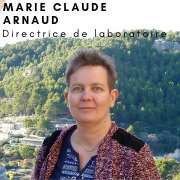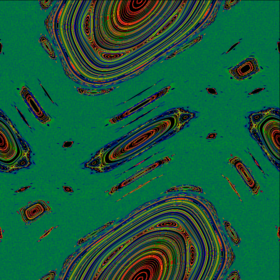Marie-Claude Arnaud
Marie-Claude Arnaud, Professor and Director of the Laboratoire de Mathématique d'Avignon

1- What is your research about?
I work on dynamical systems. This branch of mathematics studies systems that evolve over time. There are real examples in physics or in other fields which inspire and are nourished by dynamical systems: celestial mechanics which studies the movement of planets, certain complex systems in biology... My work is mainly concerned with frontier phenomena (between chaos and integrability, beyond certain critical thresholds...).
2- What is your news?
The Nicolas Bourbaki Seminar is a series of public readings with directly distributed notes that has been held in Paris since 1948. It is one of the greatest contemporary institutions in mathematics, and a barometer of the progress and reputation of mathematics. I have been chosen to give a talk next November on a recent breakthrough in dynamical systems: the proof of Herman's conjecture on positive entropy by P. Berger & D. Turaev.
3- Why did you choose to work in academic research?
I love mathematics and I have chosen a profession that allows me to do it at the highest level. I also like being in contact with young people, and teaching or interacting with them allows us to enrich each other. That's why I chose to be a teacher-researcher rather than a researcher. Afterwards, I discovered other interesting facets of this job: accompanying doctoral students in their thesis, which is a form of companionship; editorial activity, which raises questions about the future of scientific publications; participation in the research committee and laboratory management, which allows you to be a real player in the university.
4- What advice would you give to students who want to do research?
Don't make coffee... More seriously, follow your desires, aim for the best, and don't put up any (mental) barriers. Don't hesitate to talk to researchers and teacher-researchers to better understand the profession and its expectations, and start making connections that will be useful later on. Also be aware that there are differences in attitude between men and women: just because your male colleagues are more certain, it doesn't mean they know more than you or are more competent.
5- Which object or image from your research best illustrates you?

Updated on 26 March 2023